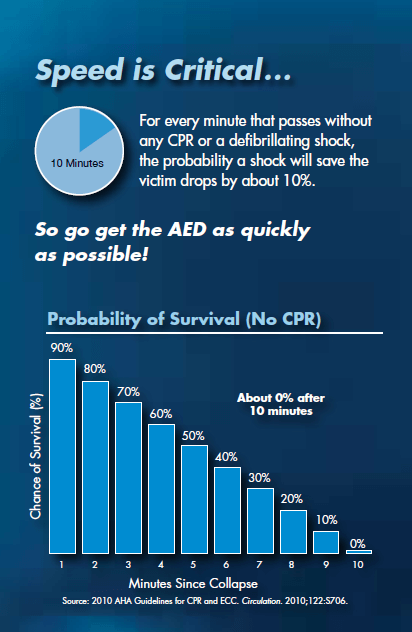Why is CPR Important?
When Cardiac Arrest strikes, the heart stops. Completely. Hard and fast chest compressions (CPR) can move blood through the heart into the rest of the body. This can save a life.
When Cardiac Arrest strikes, the heart stops. Completely. Hard and fast chest compressions (CPR) can move blood through the heart into the rest of the body. This can save a life.
By moving some blood to the brain, CPR helps to preserve it. It can also play a significant role in the survivor’s quality of life.
CPR moves blood to the heart itself. This is critical right after a defibrillating shock. A shock cannot “restart” the heart. It stuns it. Then the heart’s own electrical pacemakers can recognize and restore a natural heartbeat. As it reorganizes, the heart struggles for blood for several minutes. By moving blood through the heart back to the heart itself, CPR provides critical help to a struggling heart.
After four minutes without CPR, the arteries have quit, but the veins have continued delivering blood to the heart. This enlarges the heart to twice its normal volume, and prevents a shock from working (even if the heart rhythm is shockable) because it is too full of blood to resume pumping. Chest compressions are now more critical than the shock itself because they can restore the heart’s normal volume and allow the shock to work. A victim down longer than four minutes always needs CPR prior to delivering a shock.
